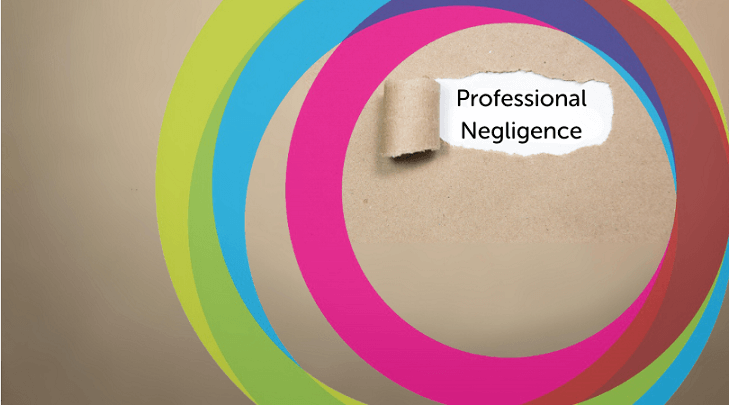When an individual or businesses instructs a professional, they expect to be given expert advice or service. But what if the advice or service is sub-standard?
In such cases, you may be able to pursue a claim of professional negligence to recover any losses.
In his first article for the firm, Dispute Resolution Solicitor Anthony Eaton outlines what professional negligence is, the grounds to claim and how it works.
What is professional negligence?
When a professional is instructed, the advice they provide and the service they carry out should meet the standard which is reasonably expected of them.
Professional negligence is where a professional doesn’t meet these standards, and this results in a loss for their client.
For example, if a surveyor does not correctly identify any property defects in a home buyer survey, you may have to pay out for repairs. Their negligence caused you financial loss, meaning they were negligent.
Is professional negligence a breach of contract?
When a professional is instructed, they owe the client a professional duty of care whether this is specified in writing or not.
Where a professional is negligent, they may have breached that duty to their client. This might depend on whether their actions, or lack of actions, meet the grounds for professional negligence.
What are the grounds for professional negligence?
In order to establish a claim for professional negligence, you must firstly be able to show that a duty of care arose between you and the professional.
This usually arises when a contract is signed, however, this can also be through verbal or informal correspondence.
Once a duty of care has been established, it must be shown the duty has been breached through negligence.
Proving that negligence led to loss or damage
However, showing a breach has occurred is not enough to bring a claim, in order to do that, it must be shown that the breach directly lead to loss or damage to the client.
A loss is not always financial, it can also be what is known as a “loss of chance”. For example, a solicitor might fail to tell their client how long they have to bring a personal injury claim and as a result, the client loses their opportunity to do so.
Simarly to negligence, misrepresentation is something often seen in property - where a seller lies to a buyer. You can read our dedicated article on that here.
What is needed to prove negligence UK?
To prove that a professional was negligent, it is often necessary to obtain evidence from an independent expert in that field.
This way, you can establish the relevant standards and whether the professional has failed to meet these when providing their services.
How much does it cost to make a claim for professional negligence?
As with any litigation, the costs will depend to a certain extent on the conduct of the other side. If the other side admit the negligence at an early stage, then the costs can be relatively low.
However, where there is no admission, court proceedings will need to be pursued which will be costly and time consuming. In this case, expert evidence will almost certainly be required which, again, is an additional cost to be considered.
How much can you claim for professional negligence?
The amount of damages that can be claimed in professional negligence depends on how much loss was caused by the breach of duty.
A claimant will need to provide evidence of the value of these losses and also establish that they arose from the breach.
How long does a professional negligence claim take?
A professional negligence claim, again, can be resolved fairly quickly if the professional admits the claim and a satisfactory settlement can be reached.
However, if the professional denies the claim, the matter may take a substantial amount of time to resolve through court proceedings.
How do I start a negligence claim?
There are specific steps set out in the Civil Procedure Rules which must be followed when starting a professional negligence claim. Once the evidence has been gathered to show there are valid grounds for a claim, a preliminary notice is sent to the professional setting out the grounds and an approximate financial value where possible.
The letter should also request that the professional informs their professional indemnity insurer, if any, immediately. The professional has 21 days acknowledge the notice.
Letter of claim
As the claimant, you’ll then have 6 months to inform the professional whether you intend to pursue a claim. If so, you must send a Letter of Claim setting out the full details.
The professional will then have 21 days to acknowledge the letter of claim and a further 3 months to investigate and provide a Letter of Response and/or a Letter of Settlement.
If the Letter of Response denies the claim or no settlement can be agreed, the claimant will be in a position to issue court proceedings.
Do you need a solicitor to launch a negligence claim?
Although you don’t need to instruct a solicitor to launch a professional negligence claim, it is certainly recommended.
These claims are often complex, so it’s important that the proper processes are followed to achieve the best possible outcome.
A solicitor is best placed to guide a claimant through the process and instruct expert witnesses. We would therefore recommend that anyone thinking of pursuing a professional negligence claim seek legal advice at the earliest opportunity.
Solicitors for Professional Negligence Claims
At Frettens, our bright Dispute Resolution Team have a wealth of experience in handling professional negligence claims for clients.
We can help you achieve the best outcome for you and gain fair compensation.
You can call us on 01202 499255, or fill out the form at the top of this page, for a free initial appointment.





Comments